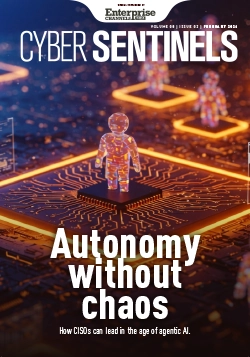The challenges facing today’s Chief Information Officers are more complicated and critical than ever before, as these leaders look to help their businesses recover and restart in the wake of a global pandemic. To that end, IBM has announced a broad range of new AI-powered capabilities and services that are designed to help CIOs automate their IT infrastructures to be more resilient to future disruptions and to help reduce costs.
Market intelligence firm IDC predicts that, by 2024, enterprises that are powered by AI will be able to respond to customers, competitors, regulators, and partners 50% faster than those that are not using AI.
To that end, IBM is unveiling IBM Watson AIOps, a new offering that uses AI to automate how enterprises self-detect, diagnose and respond to IT anomalies in real time. Unforeseen IT incidents and outages can cost businesses in both revenue and reputation. Market research firm Aberdeen pegs an outage at about $260,000/hour.
Watson AIOps enables organisations to introduce automation at the infrastructure level and is designed to help CIOs better predict and shape future outcomes, focus resources on higher-value work and build more responsive and intelligent networks that can stay up and running longer.
The new solution is built on the latest release of Red Hat OpenShift to run across hybrid cloud environments and works in concert with technologies at the centre of today’s distributed work environment, such as Slack and Box. It also works with providers of traditional IT monitoring solutions, such as Mattermost and ServiceNow.
As part of the rollout, IBM is also announcing the Accelerator for Application Modernisation with AI, within the IBM’s Cloud Modernisation service. This new capability is designed to help clients reduce the overall effort and costs associated with application modernisation. It provides a series of tools designed to optimise the end to end modernisation journey, accelerating the analysis and recommendations for various architectural and microservices options. The accelerator leverages continuous learning and interpretable AI models to adapt to the client’s preferred software engineering practices and stays up-to-date with the evolution of technology and platforms.
In addition to automating IT operations, IBM is announcing a series of new and updated capabilities designed to give CIOs a playbook for operating in this new environment. The new capabilities are designed to help:
- Automate business planning. IBM Cloud Pak for Data, IBM’s fully-integrated data and AI platform, has been updated with a host of new capabilities designed to help business leaders automate the access to critical business-ready data. For example, added to the platform as extensions are IBM Planning Analytics, designed to enable users to automate planning, budgeting and forecasting for business; and DataOps capabilities such as IBM InfoSphere Master Data Connect, which enables users to access MDM deployments in on-premises environments.
- Automate business operations. A major new update to IBM Cloud Pak for Automation, software for designing, building and running automation apps, enables clients to more easily create AI “digital worker” automation solutions. Digital workers automate routine work and collaborate with human counterparts. The new capabilities can help simplify how organisations digitise automation skills, such as data capture, task automation and business routing.
- Automate call centres. IBM Watson Assistant, IBM’s AI-based conversation platform, has also been updated to help intelligently automate the most complex, knowledge-intensive interactions and drive improved customer satisfaction while reducing operating costs. Assistant now has a pre-built user interface that requires no development effort to deploy and is designed with user experience-based best practices. Also, new integrations to some of the leading customer service platforms preserve clients’ existing investments in those services and allows users to reach live agents with ease. Finally, a new feature called autolearning, currently in development and due in the product this summer, will learn from prior customer behaviour to provide the best, most relevant answers to new questions on the same topic. Just as human agents improve over time by learning from customer interactions, autolearning will now offer similar capabilities for the virtual assistant.
“What we’ve learned from companies all over the world is that there are three major factors that will determine the success of AI in business, language, automation and trust,” said Rob Thomas, Senior Vice President, Cloud and Data Platform, IBM. “The Covid-19 crisis and increased demand for remote work capabilities are driving the need for AI automation at an unprecedented rate and pace. With automation, we are empowering next generation CIOs and their teams to prioritise the crucial work of today’s digital enterprises, managing and mining data to apply predictive insights that help lead to more impactful business results and lower cost.”

























